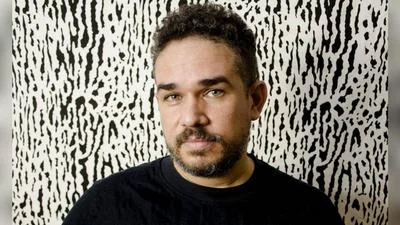University of Colorado Denver issued the following announcement on Dec. 11.
Like a lot of CU Denver students, Kristin Minzenmayer, who earns her MA in sociology this fall, pursued her degree while working full time. In fact, the evening classes were one of the benefits that drew her to our Sociology Program. As a Director at Egg Strategy, a brand strategy and market research consultancy based in Denver, Kristin often had to travel for work to moderate focus groups and conduct interviews for clients, so she needed a graduate program that would work with her schedule. “I’m so grateful that my professors understood my needs outside of the classroom,” she said. “I can’t thank them enough for their patience and endless support of me as a student and human being.”
Kristin’s travel ceased to be an issue once the coronavirus pandemic hit, but the initial push and pull of managing school and work partially inspired her graduate thesis. Her other inspiration was her thesis advisor, Professor Jennifer Reich, PhD, who taught Qualitative Methods and The Social Meanings of Reproduction. “That reproduction class challenged me to explore questions about women and work from a policy perspective, looking at how access to things like maternity leave and birth control helped women retain work when navigating caregiving responsibilities,” Kristin said. “It helped provide a historical context for what I ended up looking at in my thesis.”
Reich explains what Kristin explored in her thesis: “Drawing on interviews with women in engineering and technology, Kristin’s research shows how the pace of the work, which expects work at all hours, the ways time and work are evaluated, and the team format, which pushes women to be ever-available to their team, which is in conflict with caregiving responsibilities, led to high rates of burnout that ultimately push women out of these fields where they are already underrepresented.”
Kristin’s work skills helped her conduct interviews with women all over the U.S. It was also experience that CU’s Department of Sociology valued. While she did not have an undergraduate degree in sociology, she did have qualitative research skills she’d learned on the job. “Although my educational background was in journalism and business, I was excited to pursue a program that could help me leverage my qualitative research skills in new ways,” she said. “Hopefully the program saw that as an asset.”
“The Sociology Program at CU Denver has rare qualities in a terminal MA program—high emphasis on methodology skills and faculty doing really relevant, interesting research.”
– Kristin Minzenmayer, graduate student
And she saw her professors as an asset as well. “The Sociology Program at CU Denver has rare qualities in a terminal MA program—high emphasis on methodology skills and faculty doing really relevant, interesting research,” she said. “I got access to professors to advise me on my own research; I wouldn’t have gotten this much attention at a larger program that included PhD students.”
Kristin’s thesis focused on women who work in STEM fields because the type of work is particularly shaped by work culture and because women are underrepresented in technology and engineering. What her research found is that the work culture in STEM overrides the official policies companies put in place to protect women and other employees who need to balance work with personal responsibilities like having children and caregiving. “A big challenge is policies can only go so far,” she said. ‘If workers can’t access a policy like a comp day without facing negative repercussions, then that’s not helpful.”
Kristin hopes that the current health crisis may help evolve the work-life balance issue in STEM and other fields. “The pandemic has been an accelerator and maybe we will acknowledge some of these problems now,” she said. “As a society, we view having a family as an individual decision, but women can’t be expected to solve all these issues on their own.”

Original source can be found here.



 Alerts Sign-up
Alerts Sign-up